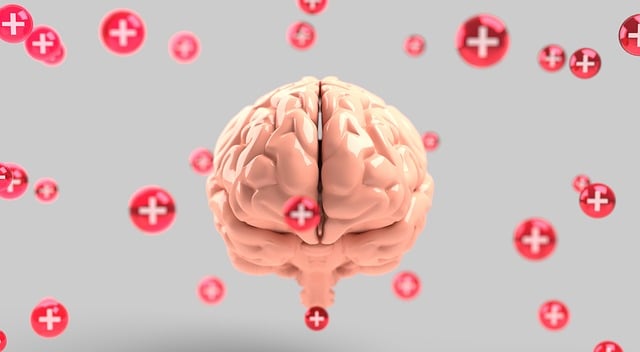Divorce significantly increases substance abuse risk due to emotional turmoil, loneliness, depression, and anxiety. Accessible therapy for adults undergoing divorce can mitigate these risks through crisis intervention, coping strategies, and resilience building. Therapeutic options for substance abuse include CBT, holistic therapies, compassion cultivation, and stress reduction. Structured routines combined with specialized therapy sessions reduce relapse risk after divorce. Long-term recovery requires ongoing therapy, specialized support, trigger management, reduced stigma, and tailored care addressing unique needs like divorce.
Divorce and substance abuse are interconnected, with high-stress post-divorce periods increasing vulnerability to addiction. Understanding this link is crucial for developing effective risk reduction strategies. This article explores various therapy options tailored for adult individuals grappling with addiction after divorce. We discuss creating a supportive environment to prevent relapse and long-term strategies for sustained recovery. By implementing these measures, individuals can navigate their post-divorce journey with resilience and hope.
- Understanding the Connection Between Divorce and Substance Abuse
- Therapy Options for Adult Individuals Struggling with Addiction
- Creating a Supportive Environment Post-Divorce to Prevent Relapse
- Long-term Strategies for Sustaining Recovery
Understanding the Connection Between Divorce and Substance Abuse

Divorce can significantly increase an individual’s risk of developing substance abuse issues or exacerbating existing problems. The process of separation and divorce is often emotionally charged, leading to feelings of loneliness, depression, and anxiety. These mental health challenges can create a perfect storm for those struggling with addiction, as they may turn to substances as a coping mechanism. Research suggests that individuals who experience divorce are more susceptible to engaging in substance abuse behaviors, especially if they lack adequate support systems or coping strategies.
Therapy for adults undergoing divorce plays a crucial role in mitigating these risks. Crisis intervention guidance during this transition period can equip individuals with healthy coping mechanisms and resilience. Mental health policy analysis and advocacy also highlight the importance of accessible and tailored support services to prevent depression and substance abuse among those facing marital separation. By addressing the underlying emotional issues and providing necessary resources, therapy can be a powerful tool in reducing the likelihood of substance abuse, fostering better mental health outcomes, and promoting overall well-being.
Therapy Options for Adult Individuals Struggling with Addiction

For adult individuals grappling with substance abuse, various therapy options are available to facilitate recovery and rebuild their lives. One effective approach is cognitive-behavioral therapy (CBT), which helps clients identify and change negative thought patterns and behaviors contributing to their addiction. CBT equips adults with coping strategies to manage cravings and triggers, fostering a sense of control over their lives. Additionally, motivational interviewing, a client-centered therapy, enhances intrinsic motivation to change by exploring the individual’s ambivalence about giving up substances.
Beyond CBT, holistic therapies like art therapy, music therapy, and mindfulness practices offer alternative avenues for healing. These therapeutic modalities cater to diverse personalities and preferences, acknowledging that recovery is deeply personal. Moreover, integrating compassion cultivation practices and stress reduction methods into treatment plans can mitigate the risk of burnout among both clients and healthcare providers, who play a crucial role in supporting individuals navigating their addiction journey.
Creating a Supportive Environment Post-Divorce to Prevent Relapse

After a divorce, creating a supportive environment is crucial to prevent relapse for adults struggling with substance abuse. This period can be particularly challenging due to heightened emotional distress and potential lifestyle changes. However, establishing a structured routine, coupled with access to therapeutic support, can significantly reduce risk factors associated with relapse. Many therapy programs for adults offer specialized divorce-focused sessions that address the unique stressors and triggers divorced individuals face.
Incorporating stress management workshops, communication strategies, and risk management planning for mental health professionals can further fortify this environment. These initiatives not only equip individuals with healthy coping mechanisms but also provide a safety net during turbulent times. By prioritizing open dialogue and fostering a sense of community, either through support groups or counseling sessions, the likelihood of successful long-term recovery is substantially enhanced.
Long-term Strategies for Sustaining Recovery

Maintaining long-term recovery from substance abuse requires a multifaceted approach that extends beyond initial treatment. Therapy for adults plays a pivotal role in this journey, offering specialized support to address underlying issues and develop coping mechanisms. Many individuals find success through ongoing therapy sessions, which can help manage triggers, prevent relapse, and foster personal growth. This continuous care is essential for navigating the challenges of daily life and maintaining sobriety over an extended period.
Additionally, public awareness campaigns development and mental health policy analysis and advocacy contribute to creating a supportive environment for recovery. By increasing understanding and reducing stigma associated with substance abuse and mental health issues, these initiatives empower individuals to seek help and access available resources. Such efforts also promote the integration of effective interventions into community settings, ensuring that those in recovery have ongoing support tailored to their unique needs, including those facing divorce or other life transitions.
In navigating the complex relationship between divorce and substance abuse, implementing effective risk reduction strategies is paramount. By combining therapy options tailored to adult individuals struggling with addiction, creating a supportive post-divorce environment, and adopting long-term recovery sustenance techniques, one can foster a robust foundation for healing. Seeking professional help, building a strong support system, and maintaining a consistent focus on personal well-being are key components in overcoming substance abuse and embracing a fulfilling future.













